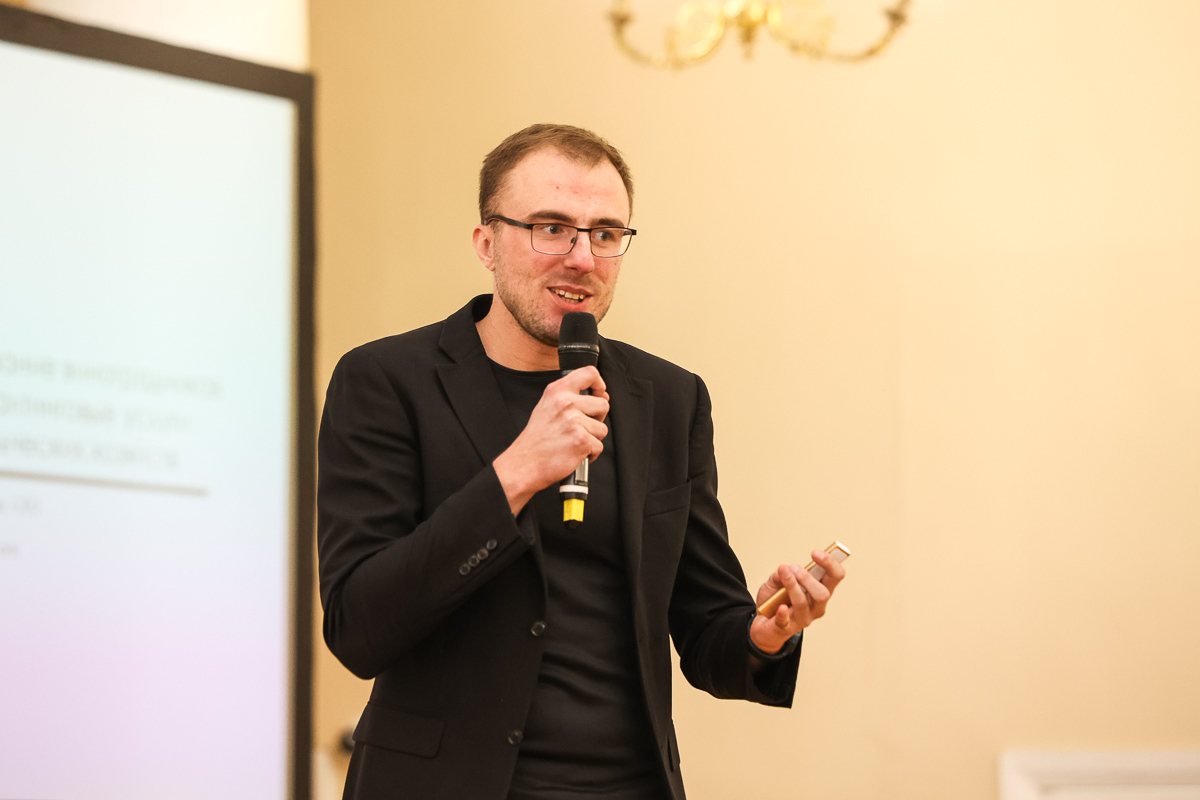Aleksandr Averianov, creator of the Terroir concept project, on his participation in the SPbU Start-up contest

Aleksandr Averianov, a 2021 winner and graduate in soil science from St Petersburg University, has shared in an interview how his Terroir concept project–recognised as the best in its category–successfully developed into a small innovative company. He has also explained how participating in the SPbU Start-up contest helped him apply his scientific development to a business context and gain valuable skills for its commercialisation.
In 2021, you presented a geographical information software package at the contest that makes it possible to: predict vintage in a particular territory; choose the optimal variety of seedlings; and help train a sommelier. Unsurprisingly, the idea originated with you in the research-intensive environment of the University, where students have the chance to collaborate on projects with experienced scientists. Is this combination truly a formula for commercial success?
The SPbU Start-up contest is supported financially by the University’s Endowment Fund.
It all stemmed from my educational and scientific pursuits. When it came time to choose a topic for my bachelor’s project, I began studying vineyards as a research student, and I absolutely loved it. I travelled to France, collected samples, brought them back to Russia for analysis, and engaged with winemakers in France. For my master’s degree, I delved deeper into the topic, studying the nutrition of the Melon de Bourgogne grape, which thrives in various conditions in north-western France. The experience I gained in the French wine market proved invaluable during my teaching practice in Russia, where I chose to work with a sommelier school. It was there that I caught the attention of winemaker Oleg Repin, who invited me to collaborate with him. I took samples from his vineyards for my master’s project, which turned into a kind of hands-on training. That was when I first realised that, from a business perspective, there was a real demand for specialists with soil expertise in winemaking. Back then, I shifted the focus of my work from studying the mineral nutrition of grapes to assessing the quality of land for viticulture. I realised this area was not only interesting and in demand but also had commercial potential, especially as the wine market was expanding in Russia.
If you don’t have substantial capital to invest and aren’t ready to dive into business immediately, it’s crucial to identify a niche with relatively few players but significant growth potential. Both factors need to align. At that time, I didn’t fully grasp the importance of this approach, but perhaps intuitively, I understood the need to move in this direction. I continued to develop my topic scientifically, with the long-term goal of creating a company. However, as a student, I didn’t yet understand how to make that happen.
I had the idea of starting a business after completing my master’s degree, but it never materialised. However, in my first year of doctoral studies, I discovered that the University was running the SPbU Start-up contest. I read the terms and conditions and realised it was entirely feasible and could be highly beneficial. I still believe that the contest was an excellent opportunity: on the one hand, it provided us with valuable experience and funding for our research, and, on the other hand, it offered the chance to create a truly innovative project. Our team successfully went through all the stages and won. The experience was incredibly useful, as our developments even secured a grant and ultimately enabled us to enter the commercial market.
You have become not only a successful start-up but also a thriving small innovative company. What have you learned from this experience?
It is crucial to understand that winning a contest is just the beginning. Afterwards, you need to establish a company, manage tax records, maintain a legal address, and handle numerous other administrative tasks such as paying taxes and insurance premiums, keeping track of incoming and outgoing correspondence, and more — things you might not consider initially. In this regard, the University provides significant support even now. For instance, St Petersburg University helps us maintain accounts with optimised service costs.
When setting up a company, you think about the business model and may even attract investment, but the real question is, what comes next? Running a small innovative enterprise means implementing a project and taking responsibility not only for the people who work with you but also for meeting obligations to the state. Once the process has begun, your role is to sustain and grow it. Finding the right niche is essential, but identifying that niche and managing the associated responsibilities and time commitments is a whole new level of challenge.
Start-up projects provide valuable insight into working with large organisations and understanding what to expect from them, as not everyone enters the business world with prior experience in this area. As a contest winner, the University offered me numerous opportunities to participate in various events. I was delegated to speak at investment forums in Kazan and the United Arab Emirates, which proved incredibly beneficial for me as an entrepreneur working on my own innovative project.
What advice or words of encouragement would you give to future contestants?
When we embark on something new, it is tempting to immerse ourselves in success stories of others and their businesses. While this can be incredibly useful, it is vital to remember that your journey will be unique. Don’t be afraid to make mistakes, especially as a student — these experiences will become your most valuable assets in future. Embrace the process of gaining that experience.
Read success stories, but also take the time to listen to yourself, reflect on your own aspirations, and critically analyse the opinions of others. Most importantly, believe in yourself and keep moving forward!

